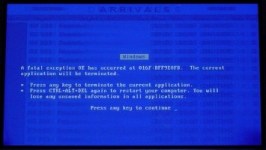There’s a movement among the students of the MBA program of Harvard Business School for an MBA Oath of ethical conduct. Read the oath here.
From a June 4th article in the Economist:
The student oath is part of a larger effort to turn management from a trade into a profession…
This is the exact debate going on in Software Development — emerging profession or craft?
One of the two main criticisms of the oath and of the whole idea of turning management into a profession, particularly in business-school faculties, is that it is either unnecessary or actively harmful… (by) promising to “safeguard the interests” of colleagues, customers, and society, are the future captains of industry simply short-changing their shareholders?
Defenders of the oath reply that the goal of maximising shareholder value has become a justification for short-termism and, in particular, rapid personal enrichment. They are concerned about managers doing things that drive up the share price quickly at the expense of a firm’s lasting health.
The second complaint is that the oath’s fine words are toothless.
Even these cheerleaders admit there are differences between practising management and, say, medicine. They concede that no self-regulating professional body for managers could possibly monopolise entry to the profession
 We can debate that a practice has ethical consequences, i.e. that it has a larger array of stakeholders who can be harmed or benefited by the daily decisions of practitioners – without calling for accreditation, lincensing, certification, standards bodies, and regulation.
We can debate that a practice has ethical consequences, i.e. that it has a larger array of stakeholders who can be harmed or benefited by the daily decisions of practitioners – without calling for accreditation, lincensing, certification, standards bodies, and regulation.
Developers should consider end users, society and our common reputation even as managers consider long-term investors, employees, their industry and the larger economy.
Name a widespread activity that isn’t abetted/enabled by software systems. Even the debate over an MBA Oath:
As for punishing unprofessional behaviour, Mr Khurana (Rakesh Khurana, a professor at Harvard Business School) is inspired by the internet rather than by a closed council of grandees. From open-source software to eBay and Wikipedia, new systems of self-regulation are emerging based on openness, constant feedback and the wisdom of crowds. These could be adapted, he thinks, to provide effective scrutiny of managers.
If anything about this strikes you as not true, I’d love to hear why.



 We can debate that a practice has ethical consequences, i.e. that it has a larger array of stakeholders who can be harmed or benefited by the daily decisions of practitioners – without calling for accreditation, lincensing, certification, standards bodies, and regulation.
We can debate that a practice has ethical consequences, i.e. that it has a larger array of stakeholders who can be harmed or benefited by the daily decisions of practitioners – without calling for accreditation, lincensing, certification, standards bodies, and regulation.